New Delhi – In a significant diplomatic gesture amidst escalating India-Pakistan tensions, Russian President Vladimir Putin dials Modi to express solidarity following the devastating Pahalgam terror attack. The call underscores Russia’s commitment to supporting India in its counterterrorism efforts and brings international attention to the situation.
Putin Dials Modi to Condemn Pahalgam Terror Attack
On Monday, Russian President Vladimir Putin dials Modi to strongly condemn the terror attack in Pahalgam that claimed 26 innocent lives on April 22. During the conversation, Putin expressed his deepest condolences for the loss of civilian lives and reaffirmed Russia’s unwavering support for India’s fight against terrorism.
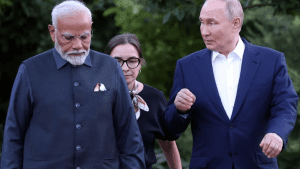
The phone call, confirmed by External Affairs Ministry spokesperson Randhir Jaiswal, saw Putin describing the attack as “barbaric” while emphasizing that the perpetrators and their supporters must face justice. This marks one of the strongest statements from an international leader since the incident occurred.
“President Putin dials Modi to convey Russia’s full support to India in its fight against terrorism,” Jaiswal stated in an official social media post. “The Russian President emphasized that those responsible for this heinous attack, along with their supporters, must be brought to justice.”
The timing of this call is particularly significant as it comes amid heightened tensions between India and Pakistan following the attack, which Indian authorities have claimed has “cross-border linkages.”
Early Condemnation and International Response
Even before the formal call where Putin dials Modi, the Russian President was among the first world leaders to denounce the Pahalgam terror attack. In his initial message to President Droupadi Murmu and Prime Minister Modi immediately following the incident, Putin had stated unequivocally: “There can be no justification for this brutal crime. We expect that its sponsors and perpetrators will be duly punished.”
Also Read: Pakistani Cyber Attackers Claims Massive Assault on Indian Defence Websites
The conversation where Putin dials Modi joins a chorus of international condemnation, with other prominent world leaders including US President Donald Trump and UK Prime Minister Keir Starmer also having reached out to the Indian Prime Minister to express their solidarity.
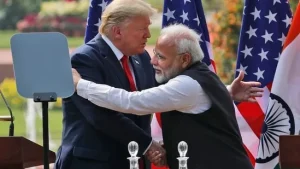

Russia’s position holds particular significance given its longstanding diplomatic relationships with both India and Pakistan. When Putin dials Modi in such circumstances, it represents a clear diplomatic alignment with India’s counterterrorism stance while sending a strong message to terror sponsors.
International relations experts note that when Putin dials Modi at this critical juncture, it demonstrates the continued strength of Indo-Russian relations despite the changing global geopolitical landscape. “This call reinforces the special relationship between the two nations that has endured for decades,” noted a senior diplomat familiar with Indo-Russian affairs.
Reaffirmation of Strategic Partnership
During the conversation when Putin dials Modi, both leaders took the opportunity to reaffirm their commitment to the special and privileged strategic partnership that has characterized Indo-Russian relations for decades. The Russian embassy’s statement highlighted that these ties are “not subject to external influence and continue to develop dynamically in all areas.”
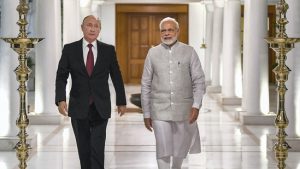

The call where Putin dials Modi serves as a reminder that the bilateral relationship remains robust despite shifting global alliances. The strategic partnership encompasses cooperation in defense, energy, technology, space, and counterterrorism efforts.
“When Putin dials Modi at such a critical time, it underscores that Russia views India as a vital strategic partner,” commented a security analyst specializing in South Asian geopolitics. “This relationship has weathered numerous international storms and continues to serve both nations’ interests.”
During the call, Prime Minister Modi extended an invitation for President Putin to visit India later in the year for the annual India-Russia Summit, further cementing the ongoing diplomatic engagement between the two nations. The fact that Putin dials Modi amidst tense regional circumstances highlights the priority Russia places on this relationship.
Diplomatic Dimensions of the Terror Attack
The Pahalgam terror attack has triggered a series of diplomatic activities, with the call where Putin dials Modi being one of the most significant. The attack has also figured prominently in discussions between External Affairs Minister S. Jaishankar and his Russian counterpart Sergey Lavrov.
During their phone conversation on Friday, Jaishankar reiterated India’s determination to bring the “perpetrators, backers and planners” of the attack to justice. The Russian readout of the call noted that they discussed the “aggravation of Indian-Pakistani relations” following the incident.
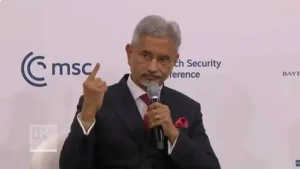

When Putin dials Modi directly rather than leaving the matter to ministerial-level discussions, it elevates the diplomatic significance of Russia’s stance. This high-level engagement follows Russia’s consistent support for India’s counterterrorism efforts on international platforms.
Interestingly, the Russian Foreign Ministry also called for the “settlement of disagreements between New Delhi and Islamabad by political and diplomatic means on a bilateral basis,” referencing the Simla Agreement of 1972 and the Lahore Declaration of 1999. This balanced approach reflects Russia’s nuanced position in South Asian geopolitics, even as Putin dials Modi to express solidarity.
India’s Response and Escalating Tensions
Following the deadly attack, India announced several punitive measures against Pakistan, including the suspension of the Indus Waters Treaty. Prime Minister Modi has also given the armed forces “complete operational freedom” to decide the mode, targets, and timing of India’s response to the terror attack.
The fact that Putin dials Modi during this tense period suggests Russia’s awareness of the potential for military escalation and possibly indicates Russia’s desire to stay informed about India’s planned response. Security analysts note that when Putin dials Modi at such a critical juncture, it allows for direct communication about strategic intentions without intermediaries.
Pakistan has responded with counter-measures, including closing its airspace to Indian airlines and suspending all trade with India. Pakistani authorities have also warned that they will respond firmly to any escalatory move from the Indian side.
As tensions continue to rise, the diplomatic significance of Putin dials Modi grows even more substantial, potentially offering a channel for measured response and eventual de-escalation.
Implications for Regional Stability
The phone call where Putin dials Modi has significant implications for regional stability in South Asia. Russia maintains diplomatic relations with both India and Pakistan, giving it a unique position to potentially influence the situation.
“When Putin dials Modi during such a crisis, it demonstrates Russia’s continued relevance in South Asian geopolitics,” noted an international relations expert. “Moscow has historically played a constructive role during Indo-Pak tensions, and this engagement suggests a similar approach now.”
The call also comes at a time when Russia was preparing for its Victory Day celebrations on May 9, marking the 80th anniversary of the defeat of Nazi Germany in World War II. Modi had been invited to attend but had decided to send Defence Minister Rajnath Singh instead. However, due to the escalating tensions with Pakistan, Minister of State for Defence Sanjay Seth will now represent India at the event.
When Putin dials Modi despite these changed arrangements, it indicates that Russia values the bilateral relationship independent of ceremonial participation. The conversation allowed Modi to convey his greetings for the Victory Day anniversary even as India manages its security challenges.
Future Trajectory of Indo-Russian Relations
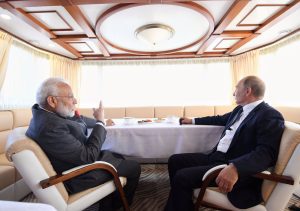

The fact that Putin dials Modi during this crisis further solidifies the enduring nature of Indo-Russian relations. Despite India’s growing ties with Western powers, particularly the United States, the Russia-India partnership continues to hold strategic significance for both nations.
“When Putin dials Modi at such a crucial moment, it demonstrates that Russia remains a steadfast partner for India,” commented a former Indian diplomat. “This relationship has consistently delivered for India during times of strategic necessity.”
The upcoming India-Russia Summit, mentioned during the call when Putin dials Modi, will provide an opportunity for both leaders to review the entire spectrum of bilateral relations and chart the course for future cooperation. This annual meeting has been a cornerstone of the relationship, ensuring regular high-level engagement.
As India navigates the complex geopolitical landscape following the Pahalgam attack, the support expressed when Putin dials Modi provides diplomatic ballast to India’s position. The relationship continues to serve as a stabilizing factor in India’s foreign policy calculus amid regional turbulence.

